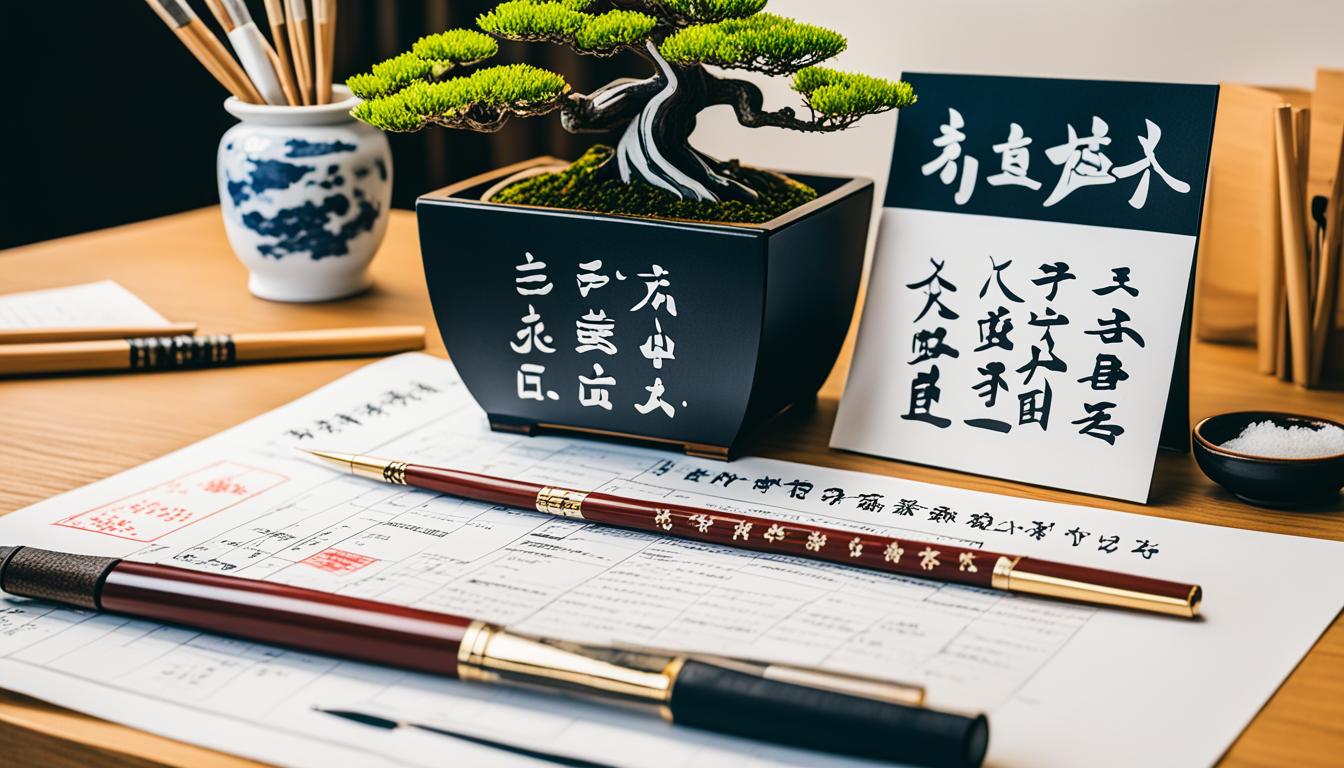Are you passionate about the Japanese language and culture? Do you have a flair for language and a keen eye for detail? If so, a career in Japanese translation could be your ticket to success. As the world becomes more connected, the demand for professional job translation services has never been higher. Whether you’re interested in translating documents, interpreting conversations, or localizing content, there are countless opportunities in this field.
But what does it take to excel in Japanese translation? In this article, we’ll explore the meaning and grammar behind Japanese business phrases, delve into the pronunciation of key words, and discuss the cultural and contextual usage of these phrases. We’ll also guide you through the process of securing a job in Japan, including visa requirements and work permits.
So if you’re ready to take your language skills to the next level and embark on an exciting career in Japanese translation, keep reading. We’ll equip you with the knowledge and tools you need to land your dream job and thrive in the world of language conversion.
Essential Japanese Business Phrases for Job Interviews
In a Japanese job interview, it’s important to be prepared and familiar with common Japanese business phrases. These phrases will not only demonstrate your language skills but also showcase your cultural awareness and professionalism. During the interview, you can expect a series of questions in Japanese to assess your qualifications, suitability, and cultural fit. Here are some essential Japanese business phrases that you should be familiar with:
| Phrase | Translation |
|---|---|
| はじめまして | Nice to meet you |
| お世話になっております | Thank you for taking care of me |
| すみません | Excuse me/I’m sorry |
| ありがとうございます | Thank you |
| ごめんなさい | I’m sorry |
| よろしくお願いします | Nice to meet you/Please take care of me |
These phrases will help you navigate the job interview process in Japan and create a positive impression. It’s important to practice these phrases beforehand to ensure smooth communication during the interview. Additionally, familiarize yourself with common Japanese job interview questions to prepare concise and effective responses. This will showcase your language skills and demonstrate your suitability for the position. Now, let’s explore some frequently asked Japanese job interview questions.
Job Opportunities in Japan for Foreign Workers
Are you considering working in Japan? The Land of the Rising Sun offers incredible career opportunities and a chance to immerse yourself in a unique cultural experience. With the Japanese government actively welcoming foreign workers, there has never been a better time to explore job opportunities in Japan.
Japan boasts a diverse job market with major industries ranging from technology and agriculture to manufacturing, information technology, and tourism. As a foreign worker, you have the chance to contribute your skills and expertise to these thriving sectors.
Japanese companies are increasingly hiring foreigners, recognizing the value and fresh perspectives they bring to the table. The government has implemented initiatives to attract and retain foreign talent, expanding visa programs and eligible occupations.
Top technology companies in Japan, such as Keyence Corp, Sony Group Corporation, and Tokyo Electron Ltd, offer exciting career prospects with a focus on innovation and cutting-edge technology.

If you’re fluent in English, Tokyo is a hotspot for English-speaking jobs in Japan. However, opportunities can be found in other cities like Osaka, Kanagawa, Bin, and Shinagawa as well. Teaching English as a foreign language is a popular choice among foreign workers, allowing for a rewarding experience and the opportunity to contribute to education in Japan.
If you’re eager to embark on a career adventure and expand your horizons, consider the job market in Japan. Explore the possibilities and find your place in this dynamic and vibrant country.
| Major Industries in Japan | Top Technology Companies | Preferred Cities |
|---|---|---|
| Technology | Keyence Corp | Tokyo |
| Agriculture | Sony Group Corporation | Osaka |
| Manufacturing | Tokyo Electron Ltd | Kanagawa |
| Information Technology | Bin | |
| Tourism | Shinagawa |
How to Secure a Job in Japan
To secure a job in Japan, it’s important to have a strong grasp of the Japanese language. Japanese companies typically expect resumes to be translated into Japanese and adhere to a different format.
Job interviews in Japan are formal and follow specific protocols, including conservative dress attire, bowing, and showing respect to the interviewer. The interview process can be lengthy, lasting up to an hour or more, and may involve a panel of native Japanese speakers.
Japanese workers value loyalty and may ask detailed questions about your motivation for applying and your hobbies/interests.
If you are unsuccessful in your job search, there are organizations available to help you find temporary work and obtain a working holiday visa.
| Steps to Secure a Job in Japan | Details |
|---|---|
| 1. Learn Japanese | Gaining fluency in the Japanese language is essential for job seekers in Japan. Take language courses, practice conversational skills, and improve your reading and writing abilities. |
| 2. Translate Your Resume | Japanese companies expect resumes to be in Japanese. Hire a professional translator or use translation services to accurately convey your qualifications and work experience. |
| 3. Research the Company | Before the interview, thoroughly research the company you are applying to. Understand its mission, vision, and culture to demonstrate your interest and compatibility. |
| 4. Dress Professionally | In Japan, conservative dress attire is expected for job interviews. Opt for a formal business suit, groom yourself appropriately, and pay attention to personal hygiene. |
| 5. Follow Interview Etiquette | During the interview, show respect by bowing and maintaining proper body language. Answer questions confidently, demonstrate cultural awareness, and highlight your relevant skills and experiences. |
Job Options for Foreign Workers in Japan
Are you considering working in Japan? As a foreign worker, you have a wide range of job options to choose from. Let’s explore some of the most popular industries and job opportunities available in Japan.
1. Commerce and Trading
Japan is known for its bustling commerce and trading industry, making it a great option for foreign workers. Companies in this sector often seek individuals with international business knowledge and language capabilities. If you have experience or an interest in global trade, this could be the perfect industry for you.
2. Food Service
The food service industry in Japan is thriving, offering numerous job opportunities for foreigners. From traditional Japanese restaurants to international cuisine, there’s a demand for skilled workers who can cater to diverse tastes. Whether you’re a chef, server, or sommelier, you can find exciting roles within this sector.
3. IT Service
Japan’s technological advancements have opened up numerous job opportunities in the IT service industry. Companies are eager to hire foreign workers with expertise in software development, data analysis, cybersecurity, and more. If you’re passionate about technology, this industry has vast potential for career growth.
4. Manufacturing
Japan is renowned for its manufacturing industry, which offers a wide range of career paths for foreign workers. Whether it’s automotive, electronics, or machinery, companies are often hiring individuals with technical skills and engineering expertise. Consider exploring opportunities in this sector if you have a background in manufacturing.
5. Non-Manufacturing
Beyond manufacturing, Japan’s non-manufacturing sector also provides job options for foreign workers. This includes fields like finance, consulting, marketing, and human resources. Companies in these industries often seek individuals with international perspectives and language abilities to support their global operations.
6. Tourism
Japan’s thriving tourism industry welcomes millions of visitors each year, creating a demand for workers in various roles. If you’re passionate about hospitality, customer service, or event management, this industry offers a range of job opportunities. From hotel staff to tour guides, there are options for foreign workers to contribute to Japan’s vibrant tourism scene.
7. Teaching English as a Foreign Language (TEFL)
Teaching English is a popular option for foreigners wishing to work in Japan. Many language schools and educational institutions are in need of qualified English teachers. Whether you have prior teaching experience or are looking for a new challenge, teaching English in Japan can be a rewarding and fulfilling career choice.
8. Internship Opportunities
If you’re a foreign student or recent graduate, participating in an internship in Japan can provide valuable work experience and insights into Japanese business practices. Many companies offer internship programs to help international students gain practical skills and network in their chosen fields.
These are just a few examples of the job options available to foreign workers in Japan. As you explore your career opportunities, consider your skills, interests, and long-term goals. Japanese companies value diversity and international perspectives, making it an exciting place to work as a foreigner.
Japanese Visas and Work Permits
When it comes to working in Japan, obtaining the right visa is crucial for foreign workers. The type of visa required depends on the length and nature of your employment. For permanent or fixed-term positions, highly skilled professional working visas are necessary.
Before applying for a work visa through the Japanese embassy, you will typically need to obtain a Certificate of Eligibility. It’s important to familiarize yourself with the visa requirements and gather all the necessary documents specific to your visa category. For example, British citizens must obtain a visa before traveling to work in Japan.
If you’re looking for short-term work opportunities or a chance to explore the Japanese culture while gaining valuable work experience, summer jobs and internships are available for foreign workers. Whether you’re interested in a Japanese student visa, working holiday visa, or permanent residency in Japan, understanding the visa process is essential for a successful job search.

